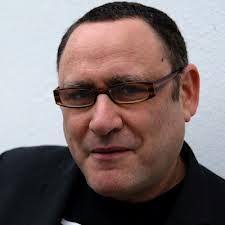Yom Kippur, War and the Power Of Deterrence
By Gilad Atzmon
Today is Yom Kippur and the 40th anniversary of the 1973 Arab–Israeli (Yom Kippur) War. That war caught Israel totally on the hop. In the first days of the conflict, both the IDF and the IAF were defeated and humiliated. Moshe Dayan, the legendary Israeli defence minister, contemplated out loud the ‘destruction of the 3rd Temple’ and, according to different intelligence sources, Israel was close to using its ‘Samson option’ – a nuclear strike against Egypt.
Interestingly, neither the Egyptians nor the Syrians had any plans to ‘throw the Jews to the sea.’ In fact, their military objectives were rather limited – liberating land occupied by Israel in 1967. The Egyptians attempted to secure a narrow bridge-head over the Suez Canal and the Syrians hoped to free the Golan Heights or at least part of it.
But driven by pre-Traumatic Stress (Pre-TSD), Israeli army generals and the government managed to recast this joint Arab operation as nothing less than an emerging Shoa. Consequently, at least for the first days of the war, they panicked and unnecessarily and critically exhausted Israeli military assets and force.
I believe that when judging Israeli contemporary politics, we need to bear in mind that the current Israeli political and military leadership were low and medium ranking front-line military commanders in that war 40 years ago. In 1973 Benjamin Netanyahu led special forces operations in Syria and Egypt. Ehud Barak, then a Lieutenant-Colonel, led an Israeli tank battalion through some of the toughest battles in the war. Israel’s defence minister Moshe “Bogie” Ya’alon fought the war as a reservist commando soldier while former Israeli Chief of Staff Gabi Ashkenazi was an infantry soldier at the time of the war and fought in the Sinai Peninsula.
Nor does it take a genius to realise that these Israeli leaders’ decisions would have been shaped by their 1973 experience. In that war they mistakenly saw themselves as the last defenders of the newly founded Jews-only state. Like all Israeli front-line combatants in that war, they interpreted the powerful but limited Syrian/Egyptian attack as a serious attempt at genocide. As any pop-psychologist will tell you, they projected their own symptoms onto their Arab adversaries. Clearly Netanyahu and his government still fall into the same trap. Time after time, they assume that the Iranians, Syrians and Palestinians are driven by murderous inclinations and are led by people who are as murderous as they are.
In the last week the Israeli papers have been saturated with articles and commentaries on Yom Kippur and the trauma that never fades away. Ynet and Haaretz both reflect on that event that shook Israel’s confidence and, for the first time, challenged its image of military omnipotence.
Two days ago I came across a very interesting story on Ynet (Hebrew edition). Apparently, just before hostilities began on October 6th 1973, Israel became aware of a vast Soviet delivery of long range Scud missiles to the Egyptian army. Seemingly, this piece of intelligence deterred Israel from its intention to raid Egyptian governmental and civilian infrastructure in Egyptian cities.
Ynet Writes:
“Three days later, on 9 October, the [Israeli] Air Force (IAF) launched a series of deep raids on Damascus military headquarters in an attempt to put pressure on the Syrian government and leadership. One would expect the IAF to launch similar air raids on Egypt’s capital. Yet despite the Egyptian initial assault, and despite the tremendous pressure exerted by Egyptian armies on the Israeli forces in the Suez Canal, Israel was careful. It was fearful. Policy makers in Israel, headed by Defense Minister Moshe Dayan, repeatedly rejected IDF’s suggestions to conduct deep raids against Egypt. It was the Soviet Scud missiles in Egypt that deterred Israel from conducting such aerial bombardments.”
I guess the meaning of this paragraph is simple yet crucial for the understanding of Israel and its politics. Israel restrained itself from pounding Egypt only because it was aware that the Egyptians had the means to retaliate. In other words, Israeli leaders knew all along that Egypt possessed the capacity to inflict pain to Israel’s cities. They must have realised that Egyptian objectives were not genocidal – but it also means that Israel’s enemies: Arab countries, as well as Iran, must pursue every possible means to posses the kind of weaponry that deters Israel.
It seems this is the only way to bring Israeli aggression to an end.
The Wandering Who? A Study Of Jewish Identity Politics, available on Amazon.com & Amazon.co.uk

Gilad Atzmon is an Israeli-born British jazz saxophonist, novelist, political activist and writer.
Atzmon’s album Exile was BBC jazz album of the year in 2003. Playing over 100 dates a year,[4] he has been called “surely the hardest-gigging man in British jazz.” His albums, of which he has recorded nine to date, often explore the music of the Middle East and political themes. He has described himself as a “devoted political artist.” He supports the Palestinian right of return and the one-state solution in the Israeli-Palestinian conflict.
His criticisms of Zionism, Jewish identity, and Judaism, as well as his controversial views on The Holocaust and Jewish history have led to allegations of antisemitism from both Zionists and anti-Zionists. A profile in The Guardian in 2009 which described Atzmon as “one of London’s finest saxophonists” stated: “It is Atzmon’s blunt anti-Zionism rather than his music that has given him an international profile, particularly in the Arab world, where his essays are widely read.”
His new book The Wandering Who? is now availble at Amazon.com
ATTENTION READERS
We See The World From All Sides and Want YOU To Be Fully InformedIn fact, intentional disinformation is a disgraceful scourge in media today. So to assuage any possible errant incorrect information posted herein, we strongly encourage you to seek corroboration from other non-VT sources before forming an educated opinion.
About VT - Policies & Disclosures - Comment Policy



